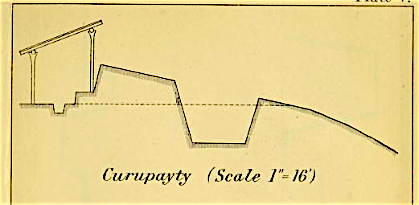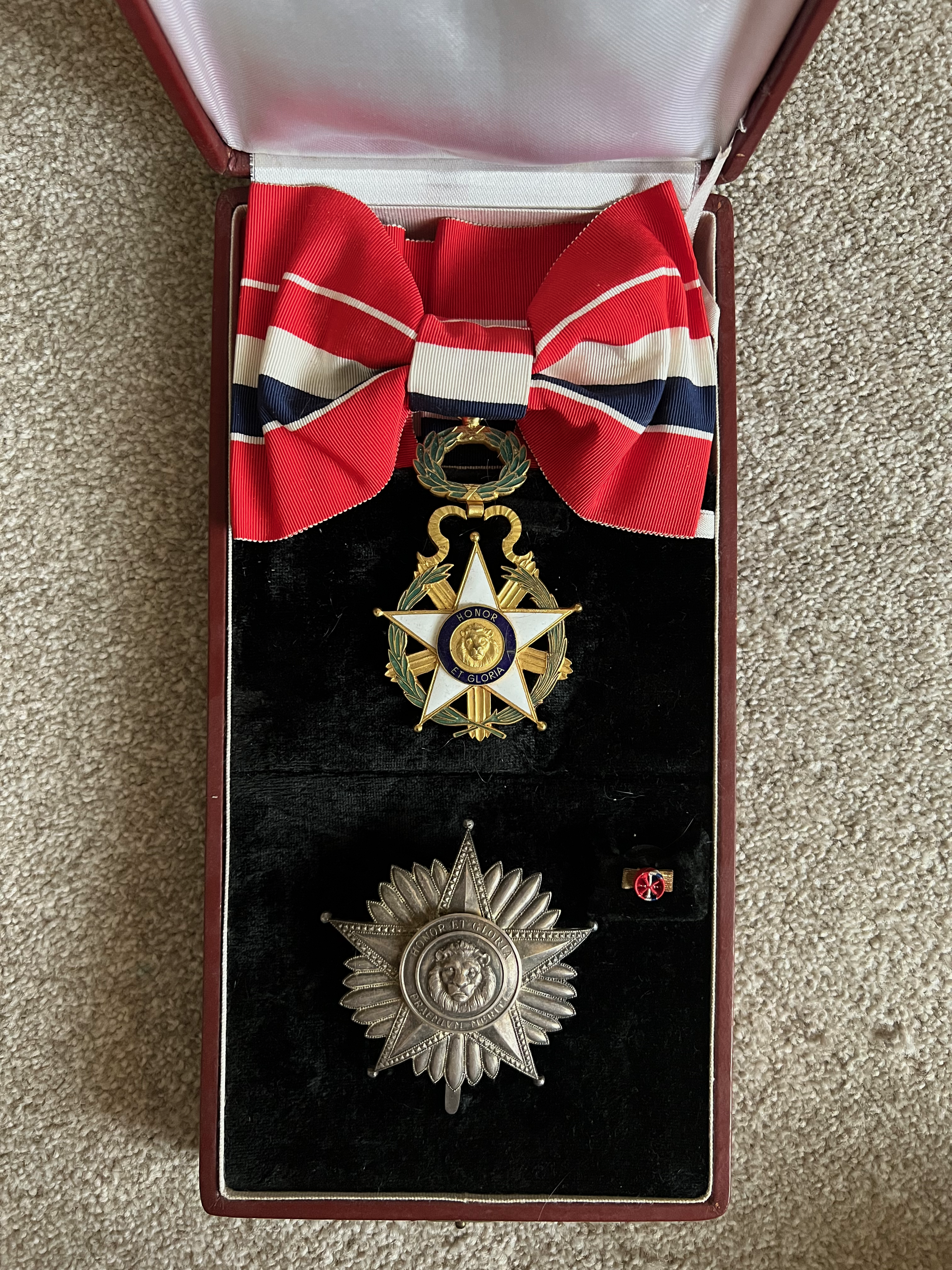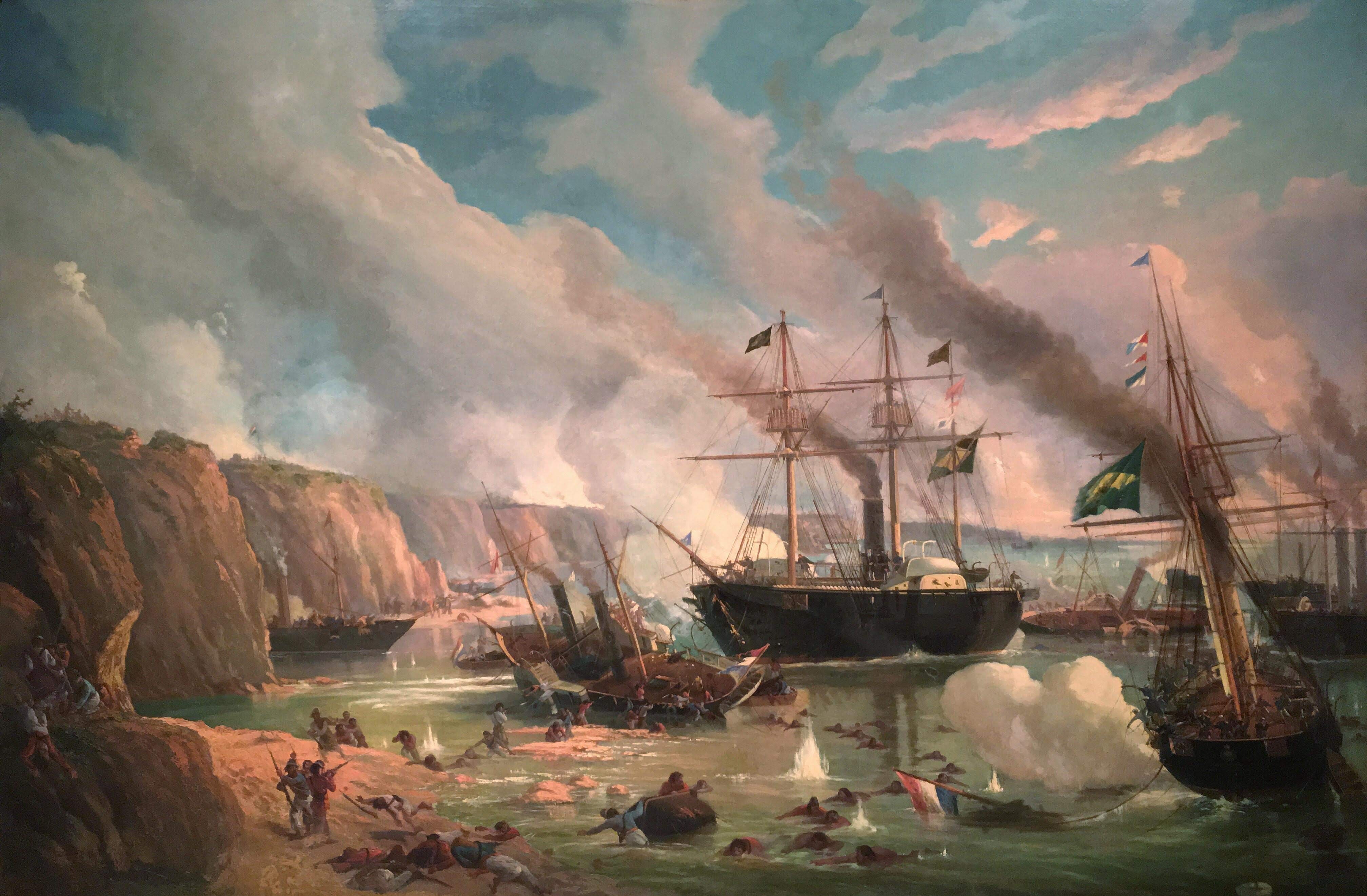|
George Thompson (engineer)
George Thompson (1839–1876) was a British engineer and military officer who was in charge of the Paraguayan military engineering during the Paraguayan War. He later wrote a history of this conflict that became one of the main sources on the subject. Early life Thompson was born in Greenwich on 26 March 1839. In 1849 he was sent to a school near Stuttgart, which he left in 1852, continuing his studies near London until 1854. From 1855 to 1857 he served an apprenticeship at the government works in Malta, and was put on the engineering staff of the gasworks in that island. He returned to England in 1857 and soon afterwards was engaged for one year as a draughtsman at a locomotive works. That was the total sum of his engineering experience when he left for South America in 1858, aged 19. Paraguay In the middle of the nineteenth century the government of Carlos Antonio López, determined to open up Paraguay to modern technology, hired for that purpose a considerable number of tech ... [...More Info...] [...Related Items...] OR: [Wikipedia] [Google] [Baidu] |
Greenwich
Greenwich ( , , ) is an List of areas of London, area in south-east London, England, within the Ceremonial counties of England, ceremonial county of Greater London, east-south-east of Charing Cross. Greenwich is notable for its maritime history and for giving its name to the Prime meridian (Greenwich), Greenwich Meridian (0° longitude) and Greenwich Mean Time. The town became the site of a royal palace, the Palace of Placentia, from the 15th century and was the birthplace of many House of Tudor, Tudors, including Henry VIII of England, Henry VIII and Elizabeth I. The palace fell into disrepair during the English Civil War and was demolished, eventually being replaced by the Greenwich Hospital (London), Royal Naval Hospital for Sailors, designed by Sir Christopher Wren and his assistant Nicholas Hawksmoor. These buildings became the Old Royal Naval College, Royal Naval College in 1873, and they remained a military education establishment until 1998, when they passed into the ... [...More Info...] [...Related Items...] OR: [Wikipedia] [Google] [Baidu] |
National Order Of Merit (Paraguay)
The National Order of Merit (Spanish: ''Orden Nacional del Mérito'') of Paraguay is an award given by the government of Paraguay. The award was first established in 1865 and can be given to any person or organization that has contributed in some way to the benefit of Paraguay. It is the highest distinction awarded by the Republic of Paraguay. The President of the Republic of Paraguay holds as a lifetime honour (unless removed by impeachment) the Grand Cross of the Order, known as Presidential Collar (or Cordon) of Marshal López. About The National Order of Merit is given to a person or an organization who has contributed to the benefit of Paraguay in various fields of endeavor. This can include through culture, leadership, and science, among others. The medal was designed as a five-pointed star with the words "''honor et gloria''" on the front and "''premium meriti''" on the reverse. History The National Order of Merit was established on April 8, 1865 by Francisco Solano ... [...More Info...] [...Related Items...] OR: [Wikipedia] [Google] [Baidu] |
Paraguayan Army Officers
Paraguayans () are the citizens of Paraguay. Though the majority of Paraguayans reside in Paraguay, significant communities have been established in multiple countries, most noticeably Argentina, Spain, United States, Brazil. History The first inhabitants of Paraguay were the Guarani people. Racial and ethnic groups As in other Latin American countries, in Paraguay, from the onset of Spanish colonization and settlement, miscegenation or ''mestizaje'' was the norm rather than the exception. Paraguay has one of the most homogeneous populations in South America. About 75% of the people are mestizo (mixed Spanish and Guarani people, Guaraní Native American descent), 20% are Whites, and the rest are small minorities of Indigenous or Afro Paraguayan origin. European or white Indigenous While only a 1.7% of Paraguay Paraguay, officially the Republic of Paraguay, is a landlocked country in South America. It is bordered by Argentina to the Argentina–Paraguay border, ... [...More Info...] [...Related Items...] OR: [Wikipedia] [Google] [Baidu] |
19th-century British Engineers
The 19th century began on 1 January 1801 (represented by the Roman numerals MDCCCI), and ended on 31 December 1900 (MCM). It was the 9th century of the 2nd millennium. It was characterized by vast social upheaval. Slavery was abolished in much of Europe and the Americas. The First Industrial Revolution, though it began in the late 18th century, expanded beyond its British homeland for the first time during the 19th century, particularly remaking the economies and societies of the Low Countries, France, the Rhineland, Northern Italy, and the Northeastern United States. A few decades later, the Second Industrial Revolution led to ever more massive urbanization and much higher levels of productivity, profit, and prosperity, a pattern that continued into the 20th century. The Catholic Church, in response to the growing influence and power of modernism, secularism and materialism, formed the First Vatican Council in the late 19th century to deal with such problems and confirm ce ... [...More Info...] [...Related Items...] OR: [Wikipedia] [Google] [Baidu] |
British Military Engineers
British may refer to: Peoples, culture, and language * British people, nationals or natives of the United Kingdom, British Overseas Territories and Crown Dependencies. * British national identity, the characteristics of British people and culture * British English, the English language as spoken and written in United Kingdom of Great Britain and Northern Ireland and, more broadly, throughout the British Isles * Celtic Britons, an ancient ethno-linguistic group * Brittonic languages, a branch of the Insular Celtic language family (formerly called British) ** Common Brittonic, an ancient language Other uses *People or things associated with: ** Great Britain, an island ** British Isles, an island group ** United Kingdom, a sovereign state ** British Empire, a historical global colonial empire ** Kingdom of Great Britain (1707–1800) ** United Kingdom of Great Britain and Ireland (1801–1922) * British Raj, colonial India under the British Empire * British Hong Kong, colonial ... [...More Info...] [...Related Items...] OR: [Wikipedia] [Google] [Baidu] |
British Expatriates In Argentina
British may refer to: Peoples, culture, and language * British people, nationals or natives of the United Kingdom, British Overseas Territories and Crown Dependencies. * British national identity, the characteristics of British people and culture * British English, the English language as spoken and written in United Kingdom of Great Britain and Northern Ireland and, more broadly, throughout the British Isles * Celtic Britons, an ancient ethno-linguistic group * Brittonic languages, a branch of the Insular Celtic language family (formerly called British) ** Common Brittonic, an ancient language Other uses *People or things associated with: ** Great Britain, an island ** British Isles, an island group ** United Kingdom, a sovereign state ** British Empire, a historical global colonial empire ** Kingdom of Great Britain (1707–1800) ** United Kingdom of Great Britain and Ireland (1801–1922) * British Raj, colonial India under the British Empire * British Hong Kong, colonial Ho ... [...More Info...] [...Related Items...] OR: [Wikipedia] [Google] [Baidu] |
British Civil Engineers
British may refer to: Peoples, culture, and language * British people, nationals or natives of the United Kingdom, British Overseas Territories and Crown Dependencies. * British national identity, the characteristics of British people and culture * British English, the English language as spoken and written in United Kingdom of Great Britain and Northern Ireland and, more broadly, throughout the British Isles * Celtic Britons, an ancient ethno-linguistic group * Brittonic languages, a branch of the Insular Celtic language family (formerly called British) ** Common Brittonic, an ancient language Other uses *People or things associated with: ** Great Britain, an island ** British Isles, an island group ** United Kingdom, a sovereign state ** British Empire, a historical global colonial empire ** Kingdom of Great Britain (1707–1800) ** United Kingdom of Great Britain and Ireland (1801–1922) * British Raj, colonial India under the British Empire * British Hong Kong, colonial H ... [...More Info...] [...Related Items...] OR: [Wikipedia] [Google] [Baidu] |
People From Greenwich
The term "the people" refers to the public or common mass of people of a polity. As such it is a concept of human rights law, international law as well as constitutional law, particularly used for claims of popular sovereignty. In contrast, a people is any plurality of persons considered as a whole. Used in politics and law, the term "a people" refers to the collective or community of an ethnic group or nation. Concepts Legal Chapter One, Article One of the Charter of the United Nations states that "peoples" have the right to self-determination. Though the mere status as peoples and the right to self-determination, as for example in the case of Indigenous peoples (''peoples'', as in all groups of indigenous people, not merely all indigenous persons as in ''indigenous people''), does not automatically provide for independent sovereignty and therefore secession. Indeed, judge Ivor Jennings identified the inherent problems in the right of "peoples" to self-determination, as i ... [...More Info...] [...Related Items...] OR: [Wikipedia] [Google] [Baidu] |
1876 Deaths
Events January * January 1 ** The Reichsbank opens in Berlin. ** The Bass Brewery Red Triangle becomes the world's first registered trademark symbol. *January 27 – The Northampton Bank robbery occurs in Massachusetts. February * February 2 ** The National League (baseball), National League of Professional Base Ball Clubs is formed at a meeting in Chicago; it replaces the National Association of Professional Base Ball Players. Morgan Bulkeley of the Hartford Dark Blues is selected as the league's first president. ** Third Carlist War (Spain): Battle of Montejurra – The new commander General Fernando Primo de Rivera marches on the remaining Carlist stronghold at Estella-Lizarra, Estella, where he meets a force of about 1,600 men under General Carlos Calderón, at nearby Montejurra. After a courageous and costly defence, Calderón is forced to withdraw. * February 14 – Alexander Graham Bell applies for a U.S. patent for the telephone, as does Elisha Gray. * Februa ... [...More Info...] [...Related Items...] OR: [Wikipedia] [Google] [Baidu] |
1839 Births
Events January–March * January 2 – The first photograph of the Moon is taken, by French photographer Louis Daguerre. * January 6 – Night of the Big Wind: Ireland is struck by the most damaging cyclone in 300 years. * January 9 – The French Academy of Sciences announces the daguerreotype photography process. * January 19 – The British Aden Expedition captures Aden. * January 20 – Battle of Yungay: Chile defeats the Peru–Bolivian Confederation, leading to the restoration of an independent Peru. * January – The first parallax measurement of the distance to Alpha Centauri is published by Thomas Henderson. * February 11 – The University of Missouri is established, becoming the first public university west of the Mississippi River. * February 24 – William Otis receives a U.S. patent for the steam shovel. * March 5 – Longwood University is founded in Farmville, Virginia. * March 7 – Baltimore City College, the third public high school in the Unite ... [...More Info...] [...Related Items...] OR: [Wikipedia] [Google] [Baidu] |
Battle Of Riachuelo
The Battle of Riachuelo (or Battle of the Riachuelo) was a large and decisive naval battle of the Paraguayan War between Paraguay and the Empire of Brazil. By late 1864, Paraguay had scored a series of victories in the war, but on 11 June 1865, its naval defeat by the Brazilians on the Paraná River began to turn the tide in favor of the allies. Plan Paraguay's fleet was a fraction of the size of Brazil's, even before the battle, and arrived at the Fortress of Humaitá on the morning of June 9. The Paraguayan president Francisco Solano López prepared to attack the ships supporting allied land troops at Riachuelo. Nine ships and seven cannon-carrying barges, totaling 44 guns, as well as 22 guns and two Congreve rocket batteries from river bank located troops, attacked the Brazilian squadron, nine ships with a total of 58 guns. The Paraguayans had planned a surprise attack before sunrise since they were fully aware that most Brazilian troops would offboard their steamers to sl ... [...More Info...] [...Related Items...] OR: [Wikipedia] [Google] [Baidu] |
Córdoba, Argentina
Córdoba () is a city in central Argentina, in the foothills of the Punilla Valley, Sierras Chicas on the Primero River, Suquía River, about northwest of Buenos Aires. It is the capital of Córdoba Province, Argentina, Córdoba Province and the List of cities in Argentina by population, second-most populous city in Argentina after Buenos Aires, with about 1.6 million urban inhabitants . Córdoba was founded as a settlement on 6 July 1573 by Spanish Empire, Spanish conquistador Jerónimo Luis de Cabrera, who named it after the Spanish city of Córdoba, Spain, Córdoba. It was one of the early Spanish colonial capitals of the region of present-day Argentina (the oldest Argentine city is Santiago del Estero, founded in 1553). The National University of Córdoba, the oldest university of the country, was founded in 1613 by the Society of Jesus, Jesuit Order, and Córdoba has earned the nickname ("the learned"). Córdoba has many historical monuments preserved from the period ... [...More Info...] [...Related Items...] OR: [Wikipedia] [Google] [Baidu] |






